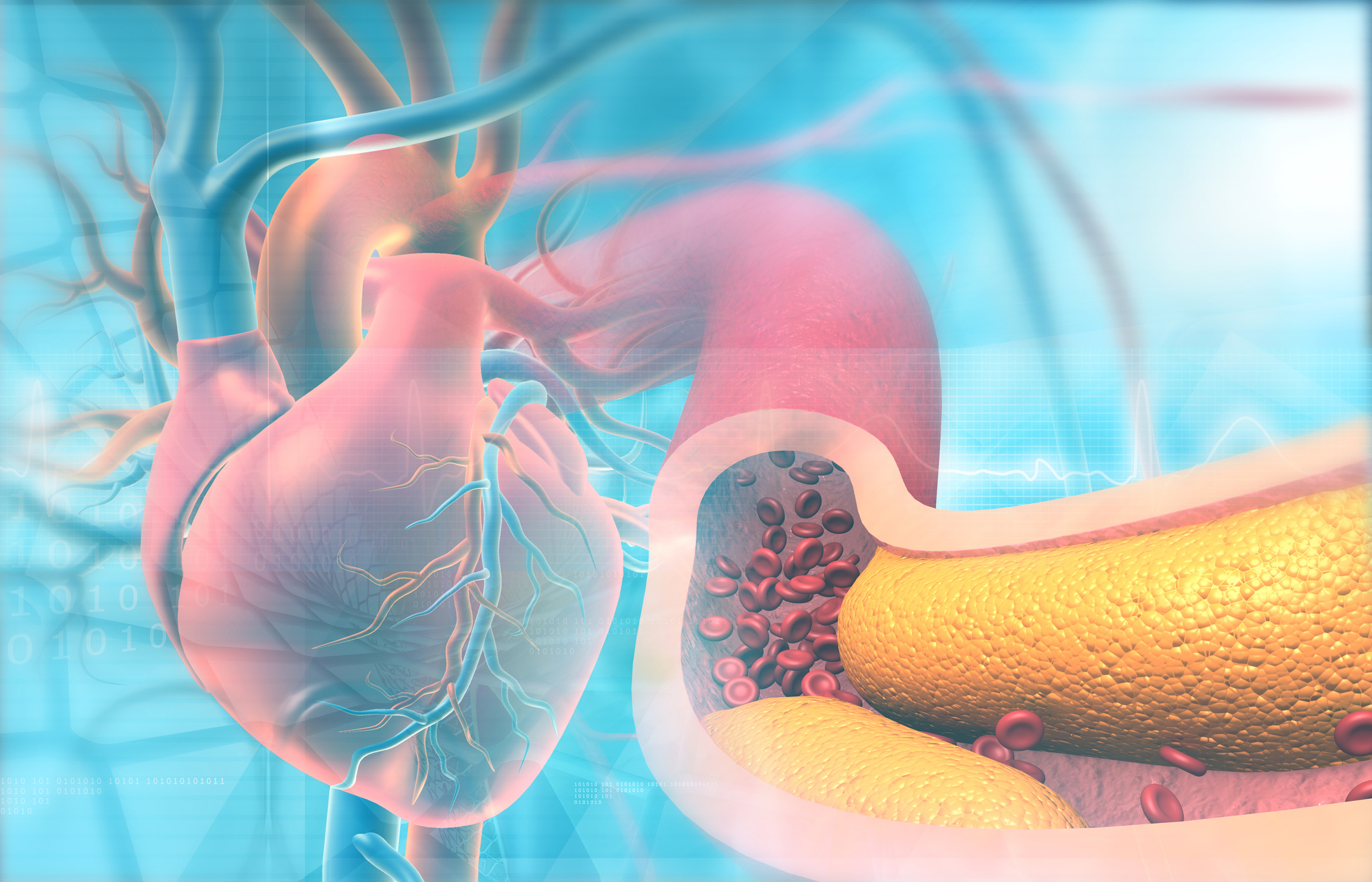Get Easy Health Digest™ in your inbox and don’t miss a thing when you subscribe today. Plus, get the free bonus report, Mother Nature’s Tips, Tricks and Remedies for Cholesterol, Blood Pressure & Blood Sugar as my way of saying welcome to the community!
The other reason HDL protects against narrowing of the arteries

All cholesterol isn’t created alike. Your body contains both low-density lipoprotein (LDL), the “bad” cholesterol that increases your risk of heart problems, and high-density lipoprotein (HDL), the “good” cholesterol that helps rid your body of LDL. HDL does this by transporting other forms of cholesterol to the liver, where it’s then flushed out of the body.
HDL also can protect against atherosclerosis, a buildup in the arteries of fatty cholesterol deposits, or plaque, that can result in narrowed arteries and restricted blood flow. In addition to removing “bad” cholesterol from cells, HDL inhibits both the oxidation of LDL and inflammation of the blood vessels.
Some researchers have been examining HDL’s role in managing blood vessel inflammation, and they believe it can be used to predict future heart trouble…
The HDL connection to inflammation, narrowing of the arteries and heart risk
Doctors already consider HDL levels when calculating the formula used to predict cardiovascular risk in patients. But a recent study conducted in the Netherlands has found that testing how well HDL particles reduce inflammation could help identify those at higher risk of developing cardiovascular diseases caused by narrowing of the arteries.
“HDL are very complex particles with anti-atherosclerotic functions that are not reflected by measuring just the cholesterol quantity,” says senior study author Dr. Uwe J.F. Tietge, professor and head of the division of clinical chemistry at the Karolinska Institute in Stockholm, Sweden.
“Atherosclerosis underlying cardiovascular disease is increasingly recognized as a disease with a strong inflammatory component, and a central biological function of HDL is to decrease inflammation.”
According to the study results, HDL anti-inflammatory capacity was markedly higher in people who remained healthy than in those who experienced a cardiovascular event. Researchers also found that for every 22 percent increase in the ability of HDL particles to suppress endothelial cell inflammation, participants were 23 percent less likely to experience a significant heart problem during the next decade.
When adding HDL anti-inflammatory capacity to the Framingham Risk Score used to calculate an individual’s cardiovascular risk over the next 10 years, the researchers found it improved risk prediction.
“The HDL cholesterol level is a good, established, simple and cost-efficient cardiovascular disease risk biomarker,” Tietge says. “Our results, however, demonstrate that the anti-inflammatory capacity or assays looking at HDL function, in general, have the potential to provide clinically relevant information beyond the static HDL cholesterol measurements that are currently used.”
The researchers also note the findings raise the possibility of developing medications to improve HDL anti-inflammatory capacity and using them to lower heart disease risk.
Keeping those HDL levels high
This study reinforces the importance of maintaining good HDL levels and the far-reaching role that inflammation plays in our health.
We’ve written in the past about good ways to boost your HDL. Adding foods like fish, ground flaxseed, avocado and high-fiber fruits and vegetables to your diet helps raise HDL levels while lowering “bad” LDL cholesterol.
Almonds are another great food for bolstering HDL levels. And using olive oil in your diet also helps combat inflammation in addition to raising HDL; you just have to be careful to eat it raw or heat it at low temperatures so that its health properties remain intact.
As well, all of these foods are also considered anti-inflammatory foods.
Of course, the typically recommended lifestyle changes like losing weight and exercising can also help you maintain healthy HDL levels, as well as reduce your risk of developing heart issues. It’s also a good idea to quit smoking if you’re a smoker, and to avoid consuming too much added sugar, which can lower your HDL.
Editor’s note: Have you heard of EDTA chelation therapy? It was developed originally to remove lead and other contaminants, including heavy metals, from the body. Its uses now run the gamut from varicose veins to circulation. Click here to discover Chelation: Natural Miracle for Protecting Your Heart and Enhancing Your Health!
Sources:
Another way “good” cholesterol is good: combatting inflammation — American Heart Association
How ‘good cholesterol’ stops inflammation — ScienceDaily
The role of HDL-cholesterol in preventing atherosclerotic disease — European Heart Journal Supplements













